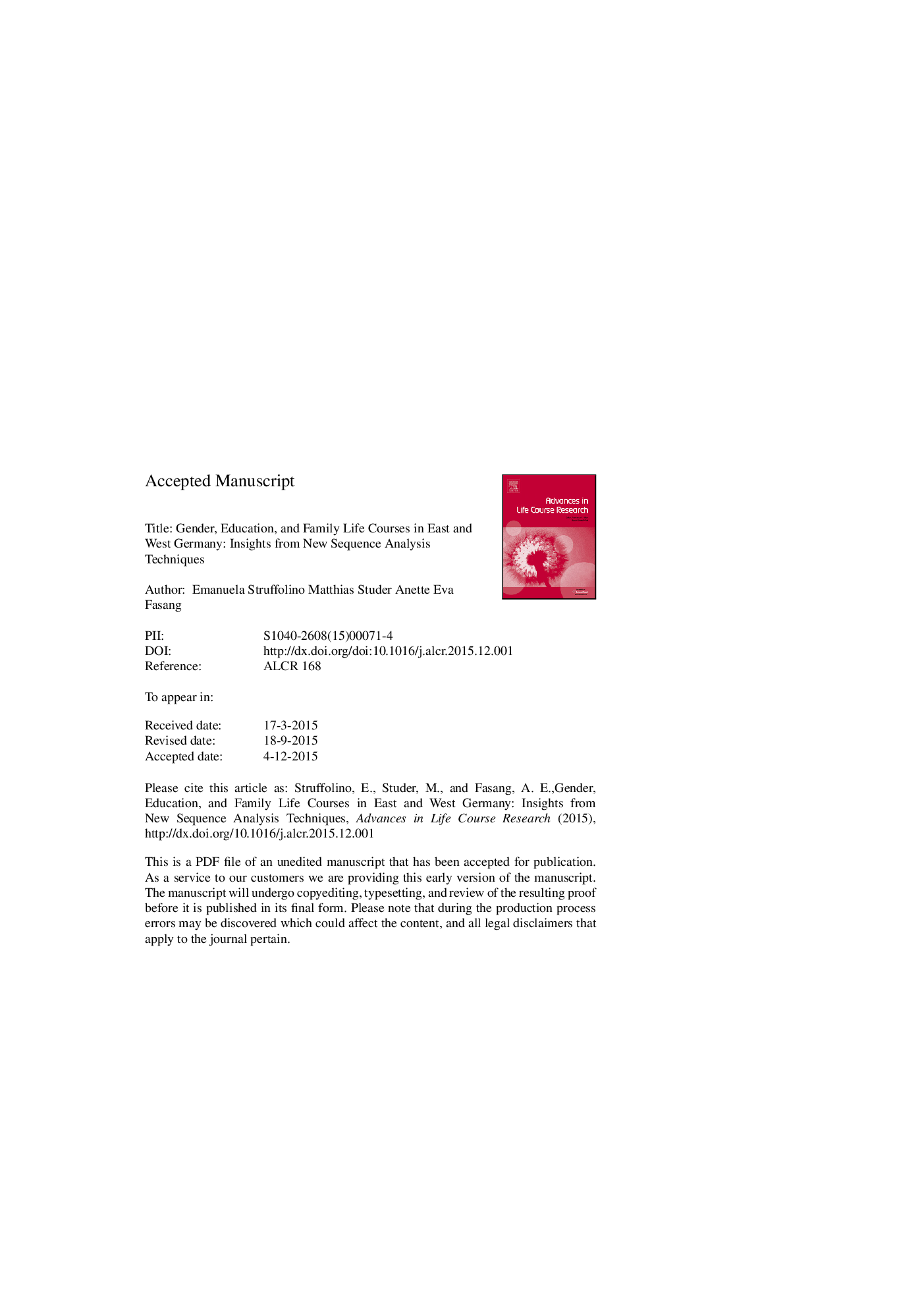| کد مقاله | کد نشریه | سال انتشار | مقاله انگلیسی | نسخه تمام متن |
|---|---|---|---|---|
| 6784835 | 862789 | 2016 | 45 صفحه PDF | دانلود رایگان |
عنوان انگلیسی مقاله ISI
Gender, education, and family life courses in East and West Germany: Insights from new sequence analysis techniques
ترجمه فارسی عنوان
جنسیت، آموزش و پرورش و دوره های زندگی خانوادگی در شرق و غرب آلمان: بینش از تکنیک های تحلیل توالی جدید
دانلود مقاله + سفارش ترجمه
دانلود مقاله ISI انگلیسی
رایگان برای ایرانیان
کلمات کلیدی
دوره زندگی خانوادگی، جنسیت، تحصیلات، شرق / غرب آلمان، تجزیه و تحلیل عدم توافق، آمار مضر برای توالی های تجزیه و تحلیل حالت های معمول،
موضوعات مرتبط
مهندسی و علوم پایه
ریاضیات
آمار و احتمال
چکیده انگلیسی
How do men and women's family life courses differ? Are gender differences in family life courses greater at higher or lower educational levels? And how does the intersection of gender, education and family life courses vary across different macro-structural contexts? This paper addresses these questions comparing East and West Germany during the German division (1961-1990). We thereby compare a strong male breadwinner model in a social market economy in West Germany and a universal breadwinner model in a state socialist system in the East. The analysis uses data from the German National Education Panel (NEPS) and employs two new sequence analysis tools: sequence discrepancy analysis and the implicative statistic for analyzing sequences of typical states. These tools enable us to scrutinize the degree, content, and timing of differences in family trajectories between men and women of different educational levels in the two sub-societies. In line with our expectations, family life courses were more de-standardized in the West compared to the East, and this occurred to the same extent for men and women in both contexts. While we find moderate gender differences in family life courses across all educational groups in the strong male breadwinner context in West Germany, for East Germany gender differences were significant among the medium and lower educated, but not among the highly educated. These findings underline the fact that the intersection of gender and education for family life courses is highly context-specific. They further suggest that different patterns of assortative mating play a key role for gender differences in family life courses. We demonstrate the added value of sequence discrepancy analysis and the implicative statistic to illuminate differences in longitudinal life courses between men and women or other social groups.
ناشر
Database: Elsevier - ScienceDirect (ساینس دایرکت)
Journal: Advances in Life Course Research - Volume 29, September 2016, Pages 66-79
Journal: Advances in Life Course Research - Volume 29, September 2016, Pages 66-79
نویسندگان
Emanuela Struffolino, Matthias Studer, Anette Eva Fasang,
